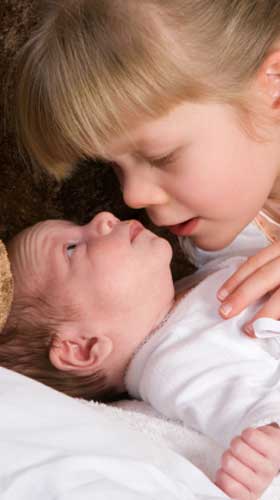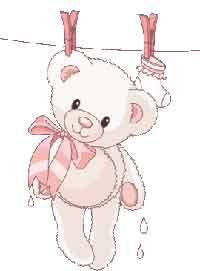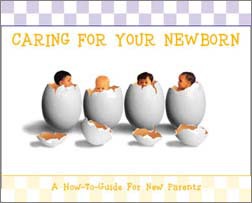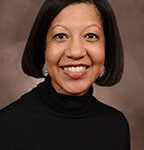 Until your baby is 2 months old, any type of infection can be very serious. Although protective antibodies against some infections are transferred from a mother to her baby prior to birth, newborns have very little resistance to germs. It is therefore important to protect yourself and your baby from contagious diseases. Such illnesses spread either through the air when someone coughs or sneezes, or by contact with skin or body fluids (i.e. saliva, nasal mucous). Mom of these infections are caused by bacteria or viruses. If your newborn’s admirers are sick or have been exposed to someone with an illness, they may spread it to your baby. Germs may be on their hands or faces. To keep your baby healthy, anyone who has symptoms of an illness should avoid contact. Any well visitors should wash their hands before they handle your newborn.
Until your baby is 2 months old, any type of infection can be very serious. Although protective antibodies against some infections are transferred from a mother to her baby prior to birth, newborns have very little resistance to germs. It is therefore important to protect yourself and your baby from contagious diseases. Such illnesses spread either through the air when someone coughs or sneezes, or by contact with skin or body fluids (i.e. saliva, nasal mucous). Mom of these infections are caused by bacteria or viruses. If your newborn’s admirers are sick or have been exposed to someone with an illness, they may spread it to your baby. Germs may be on their hands or faces. To keep your baby healthy, anyone who has symptoms of an illness should avoid contact. Any well visitors should wash their hands before they handle your newborn.
The following are tips and steps for proper handwashing.
1. Wash your hands for at least 20 seconds in warm water and with soap. Point your fingertips toward the bottom of the sink. Keep your hands lower than your elbows so the soap, water, and germs run down the drain, not onto your arms. Small children may need to stand on a stool.
2. Pay special attention to your fingernails, between fingers, and any areas that look dirty.
3. Don’t touch anything while washing your hands.
4. Rinse your hands and wrists well, then dry them with a clean towel. Paper towels are best because they can be thrown away.
5. Use the towel to turn off the water; don’t touch the faucet with your clean hands.
Child Visitors: It’s OK for healthy children to visit your newborn. However, if they have symptoms such as a runny nose, fever, or tummy ache, suggest that the keep your baby healthy by visiting after their illness has resolved. Certain bacteria can cause an infection in the baby’s blood or meningitis. Viruses such as influenza and respiratory syncytial virus can become very serious in infants, and even require hospitalization. In addition, never let your baby come in contact with children who have measles or chicken pox. Maternally acquired immunity wanes during the first six months of life, and infants are not yet eligible for the MMR or varicella vaccines.
Teach children good hand washing techniques to use before they touch your baby. For safety reasons, young children should be supervised to prevent an unintentional injury. Never let a small child feed or pick up your newborn. They may accidentally drop the baby, or not hold the bottle properly.
Adult Visitors: Avoid contact with family members or visitors who are ill, or who have been around someone who has an infection. Never let anyone with a fever visit, hold, or touch your newborn.
Pets: It is a good idea to be cautious when pets are around your newborn. Some birds and animals harbor bacteria that could cause infections. Also, don’t leave your baby alone with or near pets. Some pets may see your baby as competition for your affection. Make sure pets do not climb into the crib which could create a suffocation hazard.
Crowds: Avoid bringing your baby to parties, shopping mall trips, and other group events at least until he has received his first set of vaccines. These are administered during the two month old doctor visit, and include protection against life threatening illnesses such as pertussis and bacterial meningitis. The more people your baby is around, the greater likelihood that he will come in contact with someone who is sick.
Baby Gear: Wash or wipe down your car seats, swings, stroller wagons, portable bouncers, diaper bags, and anything that is used away from home or by others.

Caring For Your Newborn
Table of Contents
Introduction
Congratulations!
Caring Begins at Birth
Your Newborn’s Hospital Check-up
Ten Fingers and Ten Toes
Special Care for Your Newborn
When Your Newborn Cries
Changing Your Newborn’s Diaper
Feeding Your Newborn – breast or bottle feeding
Feeding Your Newborn – spit ups, weight gain, BMs
Bathing Your Newborn
Baby Gear – car seats
Dressing Your Newborn
Shhh!! We’re Sleeping
Keeping Your Baby Safe
Your Newborn’s Admirers
Taking Your Newborn Out
If Your Newborn Gets a Cold
If You Have Questions
Well-baby Check-ups
When to Call Your Pediatrician
Take Care of Yourself, Too


